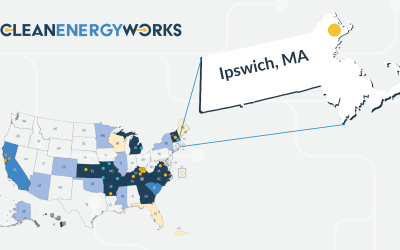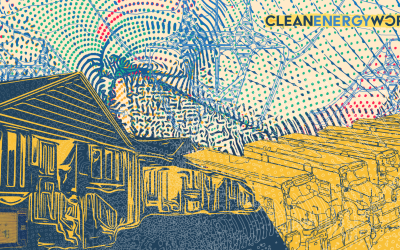At its core, inclusive utility investments aim to ensure that everyone, not just those who can afford it, is able to benefit from clean energy upgrades. Initially hailed as a successful approach within electric distribution cooperatives, this model is now finding favor among investor-owned utilities as well. This approach not only bolsters the grid through use of distributed energy resources, but also provides benefits for both utilities and consumers.
Clean Energy Works is partnering with the Smart Electric Power Alliance (SEPA) to explore utility industry opportunities and challenges related to inclusive utility investment programs. SEPA has formed an Inclusive Utility Investment Task Force to serve as a learning forum for all interested industry stakeholders, including utilities, government agencies, equipment manufacturers, program implementers, nonprofits and the financial community. SEPA membership is not required to participate.
To kick off the task force, Clean Energy Works staff members Margarita Parra, Director of Transportation Decarbonization, and Matt Flaherty, Director of Building Decarbonization, presented an introduction to inclusive utility investments.
Their presentation explained how this approach differs from traditional consumer financing by focusing on project-based utility investment tied to projected cost savings rather than an individual or organization’s credit-worthiness. This is one of the most compelling facets of inclusive utility investment – the ability to overcome financial barriers that have long hindered equitable energy access. By recovering its cost-effective investment through customer utility bills, the model circumvents hurdles such as upfront costs and consumer credit requirements and can leverage available funds such as federal grants or rebates.
Inclusive utility investment’s versatility becomes apparent through the diverse pathways for its adoption. Whether driven by utility leadership, legislative mandates, commission-led processes, state agencies, or environmental advocacy, the mechanism can benefit both utilities and customers. Utilities receive returns on their capital investments and access to distributed energy resources for virtual power plants, while consumers gain affordable access to beneficial electrification for buildings and transportation, as well as solar and energy storage.
Cathy Davison of Roanoke Cooperative presented on how the utility has implemented an inclusive utility investment program based on the Pay As You Save® (PAYS®) system called Upgrade to $ave. PAYS was invented and trademarked in 1999 the Energy Efficiency Institute, Inc (EEI) and is the prevailing system for inclusive utility investments. The Roanoke program reaches all types of member-owners from residential, commercial, rental, to agricultural as well, with more customers saying “yes” to upgrades than under any other type of program. When member-owners may have a copay or additional expenses such as for health and safety issues, Roanoke is able to provide up to $5,000 of copay assistance thanks to philanthropic partners. Roanoke has had approximately 10% of membership participate in this program and as of the end of June, invested more than $6 million into our member owners homes, businesses, agriculture facilities with additional participants in the pipeline. Out of the 1,273 participants to date, only five have defaulted on the agreement.
This is due in part to the essential consumer protections embedded in the program design to ensure estimated cost savings exceed charges, high-quality installation of upgrades, and extended warranties. For utilities without the philanthropic partners that Roanoke Cooperative has, there are challenges to implementing these programs that include additional upfront costs for upgrades that are not fully covered by utility bill savings, or the need for incentives and subsidies, especially for lower-income households with structural concerns. We look forward to diving into these topics and crafting solutions with the task force over the coming months and hope you will consider joining us on the journey.




